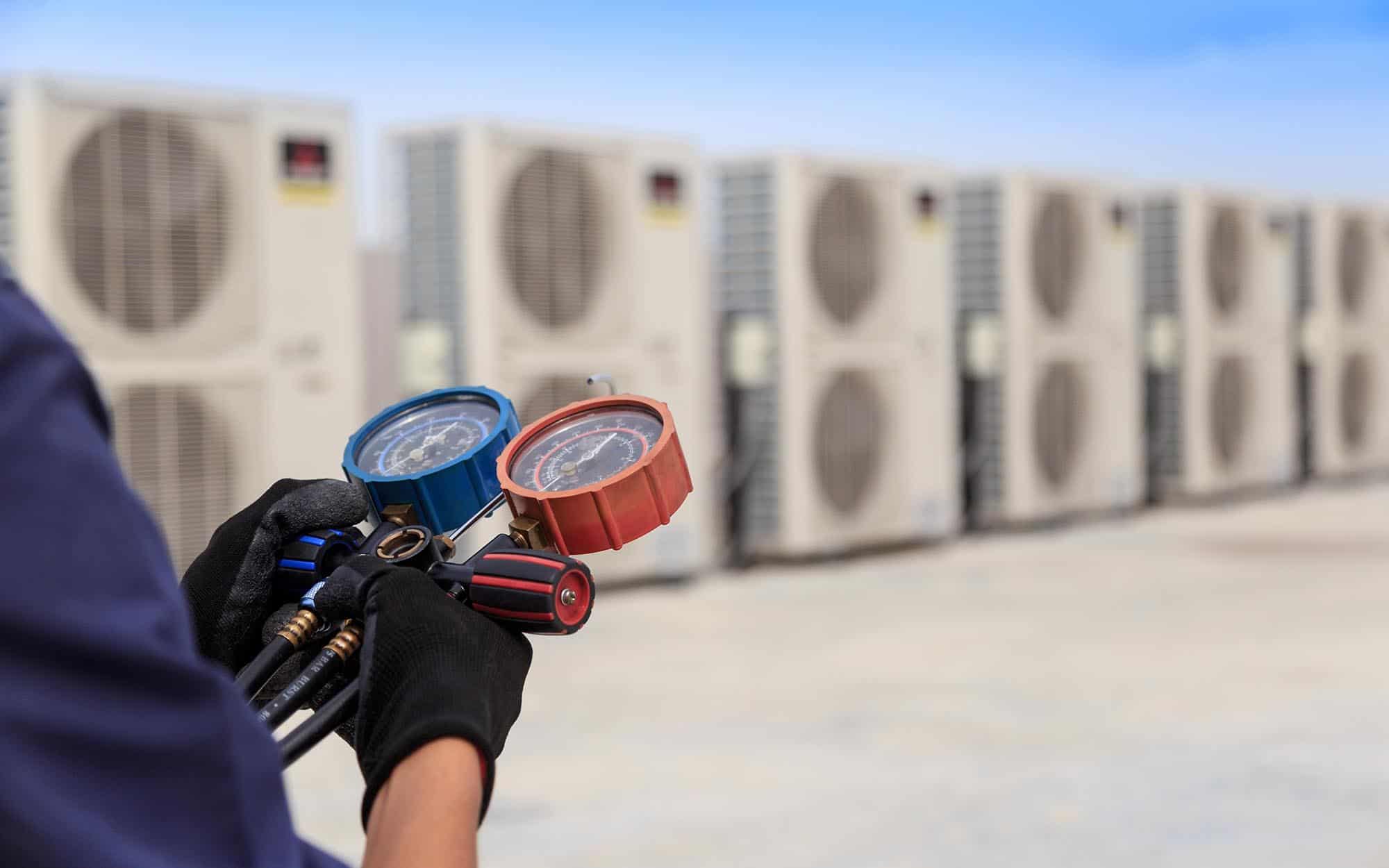
Properly sizing a commercial HVAC system is crucial for ensuring optimal performance and energy efficiency. Explore the importance of having the right HVAC equipment and the consequences of an undersized or oversized system. Additionally, learn the various factors that need to be considered when sizing HVAC equipment, such as building size, layout, climate, occupancy, and equipment usage.
The Importance of Having the Right HVAC Equipment
Having the right HVAC equipment in your commercial building is crucial to maintain a comfortable environment, boost energy efficiency, and reduce costs. Selecting the optimal heating, ventilation, and air conditioning system enhances indoor air quality and ensures consistent temperatures throughout the building. Whether it’s a commercial air conditioner or a heating unit, accuracy in HVAC sizing profoundly impacts system performance and cost effectiveness.
Poorly sized HVAC equipment can lead to numerous complications, such as insufficient heating or cooling, frequent system breakdowns, higher energy consumption, and reduced lifespan of the unit. Therefore, to avoid these problems, it’s important to properly size your commercial HVAC system based on factors such as the building’s square footage, insulation, climate, and occupancy.
Why Correct Sizing Matters
Correct sizing of your HVAC system is crucial for its efficiency and longevity. An HVAC unit that’s too large will cycle on and off frequently, wasting energy, wearing down equipment, and failing to properly dehumidify the space. On the opposite side, an undersized unit will constantly struggle to reach the desired temperature, leading to discomfort, increased energy consumption, and premature system failure.
When it comes to HVAC sizing, professional load calculation is a must. This process includes comprehensive heating load calculations and cooling load calculations that determine the amount of heat gain and heat loss in a building. With proper load calculation, you can ensure your HVAC system is matched perfectly to the needs of your commercial building, thus optimizing its performance.
How to Size HVAC Equipment
Properly sizing HVAC equipment for a commercial building can be a complex task. It involves several considerations, including the building’s size, layout, insulation, climate, and the equipment used within the building. And it’s not just about square footage. Other factors, such as heat loss and heat gain, as well as the building’s usage, also need to be taken into account. Typically, a professional HVAC contractor uses detailed load calculations to determine the ideal commercial HVAC unit size.
Building Size, Layout, and Insulation
A detailed analysis of the building size, layout, and insulation is the first step in sizing an HVAC system. The square footage of the building is a key determinant in the size of the HVAC system needed. Additionally, the layout of the building, including the number of floors and rooms, can affect airflow and hence the HVAC system size. Furthermore, the quality and type of insulation impact the heat loss and gain, influencing the HVAC sizing.
Climate and Geographic Location
The climate and geographic location of the building also significantly affect the ideal HVAC system size. For instance, a commercial building in a hot climate will need a larger air conditioner to offset the outdoor heat gain. Similarly, a building in a cold climate will require a robust heating system to combat heat loss.
How to Calculate Tonnage for HVAC Systems
Additionally, HVAC sizing specialists engage in a practice called load calculation. This analysis factors in the commercial building’s size, layout, sunlight exposure, and other aspects to ascertain the adequate commercial air conditioner and commercial HVAC unit size needed for optimum functionality.
The tonnage of an HVAC system signifies its cooling capacity. A ton of cooling is a measurement denoting the heat extracted by an air conditioner to melt a ton of ice over 24 hours. It represents roughly 12,000 British Thermal Units (BTUs) per hour. Quantifying the tonnage for your HVAC system is crucial to choosing the right HVAC equipment for your commercial building.
Occupancy and Equipment Used within the Building
The number of people that occupy the building and the type of equipment used within the space can greatly influence the HVAC system size. More people means more heat generation inside the space, which the HVAC system needs to offset. Similarly, certain types of equipment, like ovens or machinery, can add to the heat load. Therefore, these considerations play an important role in determining the right commercial HVAC system size.
Overall, proper HVAC sizing is essential to ensure effective temperature control, adequate dehumidification, energy efficiency, and a long equipment lifespan. It’s always recommended to request service from mechanical technologies professionals to ensure precise HVAC sizing for your commercial building. Remember, the correct sizing of your HVAC system can lead to significant cost savings and provide a comfortable, healthy environment for occupants.
Key Takeaways
Choosing the right commercial HVAC size impacts your system’s efficiency, longevity, and the comfort it provides.
React Technical Will Help Properly Size Your HVAC System
If you’re unsure about calculating the HVAC system size yourself, partnering with a reputable provider like React Technical is an excellent decision. Our expert team is adept at performing detailed load calculations to determine your commercial HVAC system’s size, tailoring our solutions to fit your specific needs.
From inspecting your current commercial HVAC to recognizing potential areas for improvement, we offer a comprehensive request service that guarantees you get the appropriate HVAC system size for your commercial building. We understand how crucial the right HVAC unit can be for the energy efficiency and comfort performance of your commercial property.
By partnering with industry professionals like us, you can effectively size commercial HVAC systems and ensure optimal performance in your commercial building.
We’d love to build a relationship with you. Contact us today.